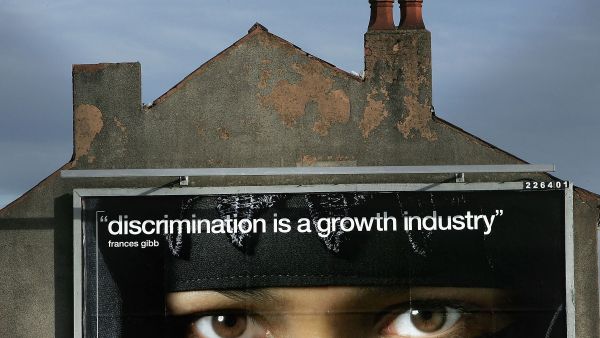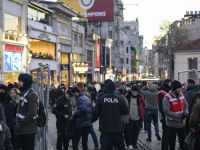Norway mourned on Sunday 93 people killed in a shooting spree and car bombing by a Norwegian who saw his attacks as “atrocious, but necessary” to defeat liberal immigration policies and the spread of Islam.
In his first comment via a lawyer since his arrest, Anders Behring Breivik, 32, said he wanted to explain himself at a court hearing on Monday about extending his custody.
“He has said that he believed the actions were atrocious, but that in his head they were necessary,” lawyer Geir Lippestad told independent TV2 news, adding that Breivik had admitted to Friday’s shootings at a Labour party youth camp and the bombing in Oslo’s government district earlier the same day.
Oslo’s acting police chief Sveinung Sponheim confirmed to reporters that Breivik would be able to speak to the court. It was not clear whether the hearing would be closed or in public.
“He has admitted to the facts of both the bombing and the shooting, although he’s not admitting criminal guilt,” Sponheim said, adding that Breivik had said he acted alone.
Police were checking this because some witness statements from the island spoke of more than one gunman, Sponheim said.
Armed police detained several people in a raid on a small house attached to a warehouse in northern Oslo, a police lawyer told Reuters. They were later released and had no link to Friday’s attacks. No explosives were found in the raid.
National tragedy
The violence, Norway’s worst since World War Two, has profoundly shocked the usually peaceful nation of 4.8 million.
King Harald and Prime Minister Jens Stoltenberg were among mourners at a service in Oslo cathedral, where the premier spoke emotionally about the victims, some of whom he knew.
“This represents a national tragedy,” he declared.
Tearful people placed flowers and candles outside the cathedral.
“We have left flowers today because the tragedy that has hit Norway and the whole world has made a big impression on us and we want to show our deepest sympathy,” said Trude-Mette, 43, who works in Oslo, as she and her children wept.
Soldiers with guns and wearing bullet-proof vests blocked streets leading to the government district.
Police said Breivik surrendered to armed officers when they arrived on the small island of Utoeya in a lake about 42 km (26 miles) northwest of Oslo after he had methodically shot dead at least 85 people, mostly teenagers and young adults attending a summer camp of the youth wing of Norway’s ruling Labour Party.
About 650 people were on the island when Breivik, wearing a police uniform, opened fire. Police said it took them one hour from when they were first alerted to stop the massacre, the worst by a single gunman in modern times.
A person wounded in the shooting died in hospital, raising the death toll to 93, Norway’s NRK television said. Police say some people remain missing. Ninety-seven people were wounded.
ANTI-MUSLIM TRACT
Police chief Sponheim confirmed that Breivik had published a 1,500-page anti-Islamic manifesto on Friday just hours before the attacks.
The online tract, written in English, describes how he planned his onslaught and made explosives, as well as outlining his violent philosophy.
The killings would draw attention to the manifesto entitled “2083-A European Declaration of Independence,” Breivik wrote.
“Once you decide to strike, it is better to kill too many than not enough, or you risk reducing the desired ideological impact of the strike,” he wrote.
He attacked what he called “the Islamic colonization and Islamization of Western Europe” and the “rise of cultural Marxism/multiculturalism.”
Sponheim defended the speed of the police response to the massacre on the island, only 500 meters long, where the gunman was able to shoot unchallenged for a prolonged period.
“The response time from when we got the message was quick. There were problems with transport out to the island,” he said.
Witnesses said the gunman shot his victims at will, as youngsters fled in panic or tried to swim to the mainland.
Breivik may have intended the Oslo bombing, which killed seven people, partly as a diversion. Police believe he drove to Utoeya after the explosion in the capital.
His lawyer, Lippestad, speaking late on Saturday, did not give more details of Breivik’s possible motives.
A video posted on the YouTube website showed several pictures of Breivik, including one of him in a scuba diving outfit pointing an automatic weapon.
“Before we can start our crusade we must do our duty by decimating cultural Marxism,” said a caption under the video called “Knights Templar 2083” on YouTube, which removed the clip on Saturday.
Immigration
Norway has long been open to immigration, which has been criticized by the populist Progress Party, to which Breivik once belonged. The Labour Party, whose youth camp he attacked, backs multi-culturalism to accommodate different ethnic communities.
“We are all in sorrow, everybody is scared,” said Imran Shah, a Norwegian taxi driver of Pakistani heritage, as a light summer drizzle fell on unusually empty Oslo streets.
Home-grown anti-government militants have struck elsewhere, notably in the United States, where Timothy McVeigh killed 168 people with a truck bomb in Oklahoma City in 1995.
Breivik’s actions have prompted soul-searching in Norway.
At Oslo cathedral, Britt Aanes, a priest aged 42 said the fact that Breivik was Norwegian had affected people deeply.
“In one way, I think it was good that it was not a Muslim terrorist group behind this,” she said.
“But it is almost more gruesome because it says more about how complicated the topic of immigration and inter-religious interaction can be, how important it is that...we see that we are a small and privileged people.
“We must open our eyes and not simply think that we can keep all this wealth to ourselves,” Aanes said.
Richard Ayers, a former US intelligence officer now based in London, said that Breivik might have decided to strike back at the government for allowing increased Muslim migration into Norway. “And that’s what he did, he struck at the government.”
Other analysts questioned whether the Norwegian authorities had been so focused on preventing Al-Qaeda-type attacks that they had neglected the threat from home-grown violence.
“While the main terrorist threat to democratic societies around the world still comes from Islamist extremists, the horrific events in Norway are a reminder that white far-right extremism is also a major and possibly growing threat,” said James Brandon, research head at London’s Quilliam think-tank.
Grief was still raw for survivors and relatives clustered at a hotel in Sundvollen near Utoeya island. They huddled together, many with bloodshot eyes, at terrace tables.
Inside, a board gave contact details for priests and imams. Pinned to the board was a poem that begins: “Today, today it’s not thesame. Our shining lights snuffed in out in shame.”
By VICTORIA KLESTY AND GWLADYS FOUCHE








